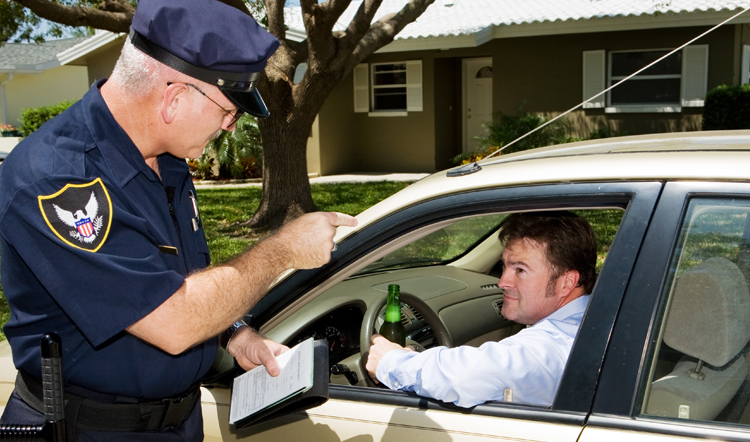Many of our clients charged with driving under the influence or DUI were never “pulled over” by the police. Instead, the encounter with police officers occurs at what is commonly referred to as a “DUI Roadblock.” A roadblock occurs when two or more police officers create a mandatory stopping point on a roadway. Drivers passing through the area must stop their vehicles and speak with one or more police officers. The driver is often asked to present a driver’s license and to answer a number of questions by the officer. In our experience, typical questioning includes inquiries as to where the driver has been, where the driver is going and whether or not the driver has consumed alcohol.
DUI Roadblocks “Can” Be Legal
The Fourth Amendment to the United States Constitution protects citizens from unreasonable searches and seizures. The United States Supreme Court has held that stopping a car at a roadblock constitutes a “seizure” within the meaning of the Fourth Amendment. Thus, to pass constitutional muster, the roadblock must be reasonable.
In Kentucky, roadblocks with a primary purpose of detecting ordinary criminal wrongdoing are unconstitutional. However, roadblocks with a primary purpose of keeping roads safe are constitutional – so long as they are reasonable.
The Kentucky Supreme Court has provided a four-factor test for determining whether a DUI checkpoints is constitutional:
Factor One: Decisions Regarding Location, Time and Procedures
“It is important that decisions regarding the location, time, and procedures governing a particular roadblock should be determined by those law enforcement officials in a supervisory position, rather than by the officers who are out in the field. Any lower ranking officer who wishes to establish a roadblock should seek permission from supervisory officials. Locations should be chosen so as not to affect the public’s safety and should bear some reasonable relation to the conduct of law enforcement is trying to curtail.”
Factor Two: Compliance with Procedures Established by Superior Officers
“The law enforcement officials who work the roadblock should comply with procedures established by their superior officers so that each motorist is dealt with in exactly the same manner. Officers in the field should not have unfettered discretion in deciding which vehicles to stop or how each stop is handled.”
Factor Three: Is the Roadblock Readily Apparent?
“The nature of the roadblock should be readily apparent to approaching motorists. At least some of the law enforcement officers present at the scene should be in uniform and patrol cars should be marked in some manner. Signs warning of a checkpoint ahead are also advisable.”
Factor Four: Officer Must Have Reasonable Suspicion to Prolong Stop
“The length of the stop is an important factor in determining the intrusiveness of the roadblock. Motorists should not be detained any longer than necessary in order to perform a cursory examination of the vehicle to look for signs of intoxication or check for license and registration. If during the initial stop, an officer has a reasonable suspicion that the motorist has violated the law, the motorist should be asked to pull to the side so that the other motorists can proceed.”
What should I do if I received a DUI at a DUI roadblock?
First and foremost, know and defend your rights. A skilled and experienced DUI attorney will be able to obtain all necessary documentation and testimony regarding the roadblock. Ultimately, if the roadblock does not comply with the standards above, the attorney will ask the Court to find the stop of your car unconstitutional. If the stop of your car is unconstitutional, all evidence obtained after the stop is inadmissible at trial. In other words – the DUI charge against you would almost certainly be dismissed.
If you have received a DUI as a result of a stop at a DUI roadblock, you should hire a lawyer who knows how to navigate tough issues and make the proper arguments to the Court. While the facts of each case are always very different, it is always the Commonwealth’s burden to prove the roadblock satisfied all of the elements listed above. Hire an experienced DUI attorney who knows how to hold the Commonwealth to that burden.


